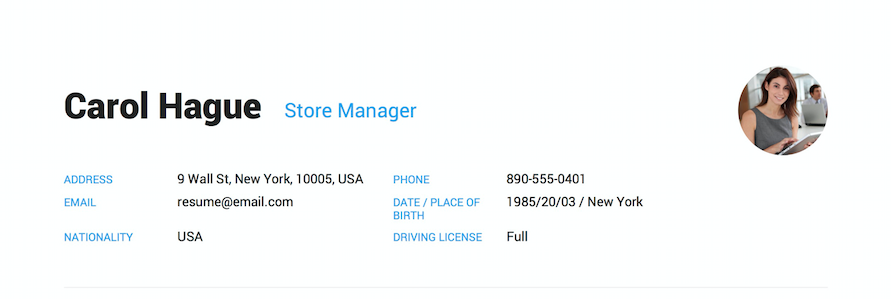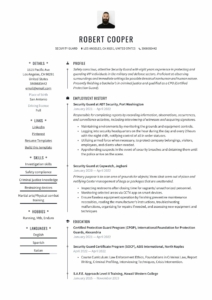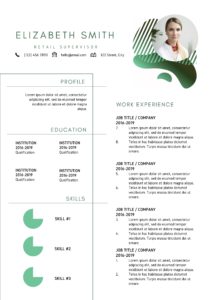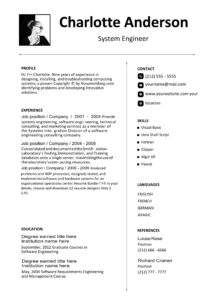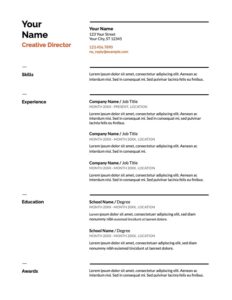
Resume Keywords & SEO: Half of you reading this blog would have been exposed to SEO (Search Engine Optimization) in some shape or form. Especially if you are in the fields of sales, marketing, IT or advertising. Moreover, if you form part of the ‘’other half’’ you understand the concept on a superficial level or at least know what the acronym stands for.
Now, why is a blog about SEO necessary on a resume-building site? (we did use the concept of SEO to attract you to the site after all, and you are most probably not interested in the nitty-gritty of how we enticed you to click on this blog post, right?)
Well, if you are a jobseeker (active or passive), you should perhaps take a closer look into those nitty- gritty, because SEO keywords determine the visibility of your Resume 2.0.
What you can read in this article
Why do I need SEO Keywords?
Artificial Intelligence mechanisms are irreversibly changing the talent landscape especially where screening and shortlisting are concerned. These activities, previously executed by recruiters of the “homo sapiens kind”, are now handled by recruiters of the bots and automation variety.
Beware, they are there to screen you out, not to shortlist you in. The chances are that your resume will only be under human eyes at the shortlisting for the interview stage of the application process.
Applicant Tracking Systems (ATSs) are designed to scan resumes, and online profiles for specific keywords (see this as resume SEOs) and only those matching the keyword protocols will be allowed to continue to the next stage. The first rule of Resume SEO optimization is customization (and so is rule number 2, 3, 4…catch my drift?)
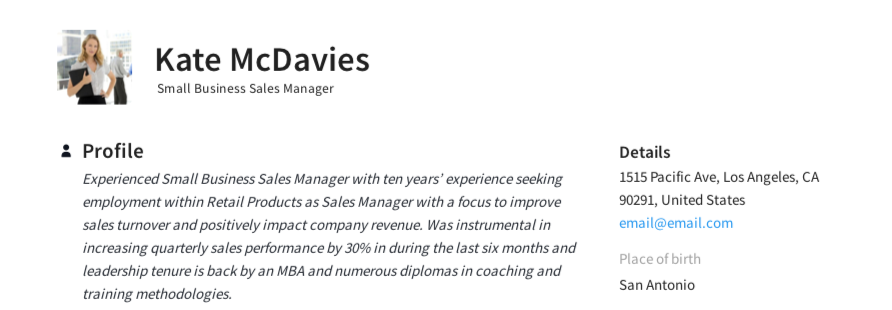
Keyword Customization
Help them, to help you. It’s as simple as that.
The right usage of keywords throughout your entire resume (not just the skills section) will greatly increase your chances of being found, seen and contacted for job opportunities.
In a recent blog on Monster.com, Lily Martis suggests that SMART job seekers “sprinkle keywords throughout a resume to make sure their resume is found when a recruiter searches for a specific job candidate or someone with particular skills.”
The trick to successful ‘’SEO-ing’’ lies in customization. You may need to redesign certain sections of your resume to fit the specific keywords of the job description.
Here are a few tips to help you:
#1 – Spell it out
➢ When using specific buzzwords even when the acronyms are well-known, rather include the full descriptive term with the acronym in parenthesis next to it, for instance, Search Engine Optimization (SEO).
➢ You would be surprised at how many recruiters let candidates fall through the screening gap, just because they are searching for a specific acronym on a resume when the term is written out in full.
#2 – Drench
➢ Saturate your resume with relevant industry jargon, buzzwords, trending terminology and job descriptions containing valuable stuff, not subjective fluff.
➢ For example: ”Increased sales in the emerging markets sector by 50% during the last quarter from 20% in the previous quarter” is better than “being an expert at creating new customer networks and curating numerous deals.”
#3 – Search and Stalk
➢ Scout for useful language and most viable job descriptions on Linkedin and free resume boards like Indeed, by doing a few Boolean searches as if you were the recruiter sourcing for prospects.
➢ Use the profiles, competencies, skills and duties descriptions of those candidates that pop up on the first page of results as examples when you create your own resume.
#4 – Look and Learn
➢ Have a look at the vacancies advertised by leading companies in your industry which will provide a good idea of SEO keywords to incorporate in your resume.
#5 – Follow the Leaders
➢ Following the blog post of a few key influencers in your sector will also increase your verbiage regarding the latest OL’s (operating languages) and IT’s (industry terminologies.
#6 – Human-Friendly
➢ Stuffing your resume with SEO keywords resembling one big word cloud is not the answer.
➢ The basic rules of sentence construction and semantics still apply.
➢ Remember after you have passed the robotized applicant tracking systems, you still need to appeal to a human eye regarding readability.
#7 – Remove & Rephrase
➢ Think Coco Chanel: “Before I leave the house I remove 30% of my attire and accessories not to be overdressed’’. The same holds true for your resume.
➢ The chances are that your first draft will be too lengthy and too descriptive. Remove modifiers like great, excellent and highly. Sentences should be punchy and concise thus too many commas, and’s, or’s and but’s need to go.
➢ Avoid generic puffing such as “rewarding career opportunity” and “challenging position” from your motivation summary.
#8 – Copycat
➢ Mimic the exact phrases in the job advertisement by directly copying the most important parts into your responsibilities and duties sections. (take note: some individual parts, not the entire job description).
#9 – Fancy-Free
➢ Make use of free resume scanning tools such as Job Scan to boost the SEO content.
➢ You can find the top 500 resume keywords of 2018 by clicking on this link.
Recruitment AI. Beat them
Beating the algorithm can be done by using applications to identify common patterns in job descriptions and role advertisements like Jobscan or Resunate.
These apps will indicate exact keywords that are missing from your resume and online content and offer suggestions on information to add (or remove) to improve your job matching score.
Resume Recruitment IA. Join Them
Alternatively, you could just become ‘’the bot’’.
Resume chatbots are still under the radar, but definitely, an avenue to pursue if time resources are limited.
Hypothetically you will construct your own chatbot for the purpose of answering recurring questions from recruiters about work experience, interest, and skills on your behalf. The irony is, your bot will probably not be chatting to a human recruiter either!
Your Resume SEO Optimized & User-friendly
Reconfiguring your resume to emphasize target keywords is a good place to start.
Using current industry terminologies and specific buzzwords will get you past the software gatekeepers and keep you from landing in the digital garbage bin.
Presenting a document with skimmable sections, high-impact keywords and SMART job descriptions is most likely to impress the recruiter and also the hiring manager, so you can secure that all-important interview date.
